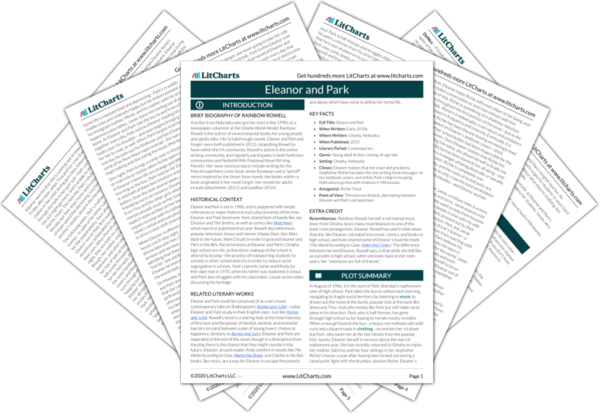AI ToolsNew
Tools to make learning and teaching easier
|
Previous
Prologue
|
Eleanor and Park: Chapter 1 Summary & Analysis |
Next
Chapter 2
|


Upgrade to unlock the analysis and theme tracking for all of Eleanor and ParkEleanor and Park!
Get LitCharts A+